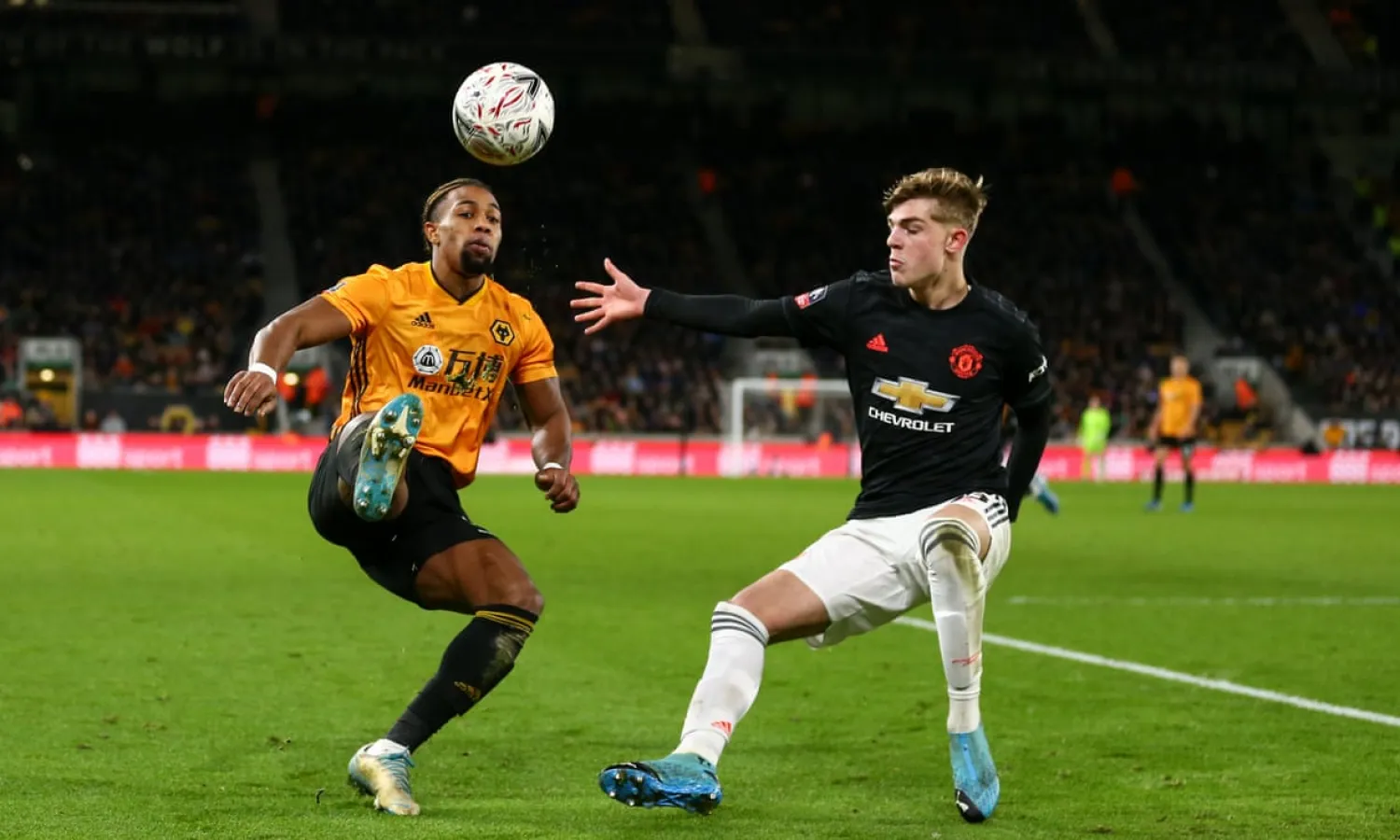“You’re not famous any more,” sang the home fans in the Jack Hayward Stand, but that isn’t really true. Manchester United are still famous, it’s just not for the same thing anymore. Once, as Steve Bull observed at half-time, Wolves would have feared United, but no longer. There was at least a semblance of pattern here, at least until they got into the final third, but unless they get an early goal and can counter, United rarely look like blowing opponents away.
Once United wore red shirts that for more than 100 years had symbolized passion and attacking flair, a club that believed in doing things the right way. Here they wore black with orange detail, because they are a brand, far more adept at selling merchandise and growing their social media following than any of that dull 20th-century stuff like putting together a football team.
Once they were renowned for their astuteness in signing and promoting youth, a facet always near the surface when they meet Wolves, given how they enticed Duncan Edwards from the Midlands. Perhaps it’s because they’ve promoted youth so successfully that the youths are now the players they rest for Cup games, but here it was Wolves’ youngsters, Pedro Neto in particular, who looked the more promising. Not that there was a huge amount of promise on either side. This was not a good game, one of those disjointed occasions that so often characterize the early rounds of the Cup when both teams field half-and-half sides.
Although there were seven changes from the United team that lost so dismally at Arsenal on Wednesday, the sense was of a team selected with the aim of protecting Marcus Rashford and Aaron Wan-Bissaka, both of whom began on the bench. In the end, Rashford had to be called upon with 21 minutes remaining. He hit the bar immediately but that was a rare opportunity in anther drab display.
It says much for the abject way in which United’s squad has been put together that the decision to rest Fred, coupled with the injuries to Paul Pogba and Scott McTominay, left them fielding both Nemanja Matic and Juan Mata in midfield. That might have been a reasonable prospect at Chelsea at the beginning of the last decade – although Mata’s time at the club came between Matic’s two spells there – but here it felt a little like using a Nokia 3310 in an era of smartphones. Sure, it can make a call, or ghost a free-kick just wide, but the result, hardly surprisingly, was that whenever a Wolves player got a run at them – and with Adama Traoré, Neto and the 21-year-old Benny Ashley‑Seal, Wolves had plenty of runners – there was danger.
Traoré remains a gloriously unlikely figure, somebody whose bustling running style offers a perpetual reminder that the Argentinian verb for dribbling – gambetar – is derived from a gaucho term for the gait of the ostrich. This ostrich, though, is one that bears on its trim legs the upper body of a rugby league forward. Neto, a 19-year-old summer acquisition from Braga, is quick and a fine crosser with his left foot, but has the technical skills that Nuno Espírito Santo thinks his future may lie through the middle as a No 10. Ashley-Seal, making his first senior start for the club, was far from overawed against two central defenders with 59 international caps between them, even if there was little sign of the finishing ability that brought him a hat-trick against Carlisle in the EFL Trophy before he was withdrawn at half-time for the more proven figure of Raúl Jiménez.
United may have had more possession than most away sides at Molineux, at least before half-time, but that is a mixed blessing for a team that is at its best when playing on the break and frequently seems to lack the wherewithal to unpick well-drilled defenses. No shots on target is a damning statistic.
Wolves played with a zip and sense of purpose United lacked and had far more in the way of clear chances. Perhaps that’s what you’d expect from a game between seventh and fifth in the league, even with all the changes, but those home fans were right: this is worryingly far from the old United.
(The Guardian)









